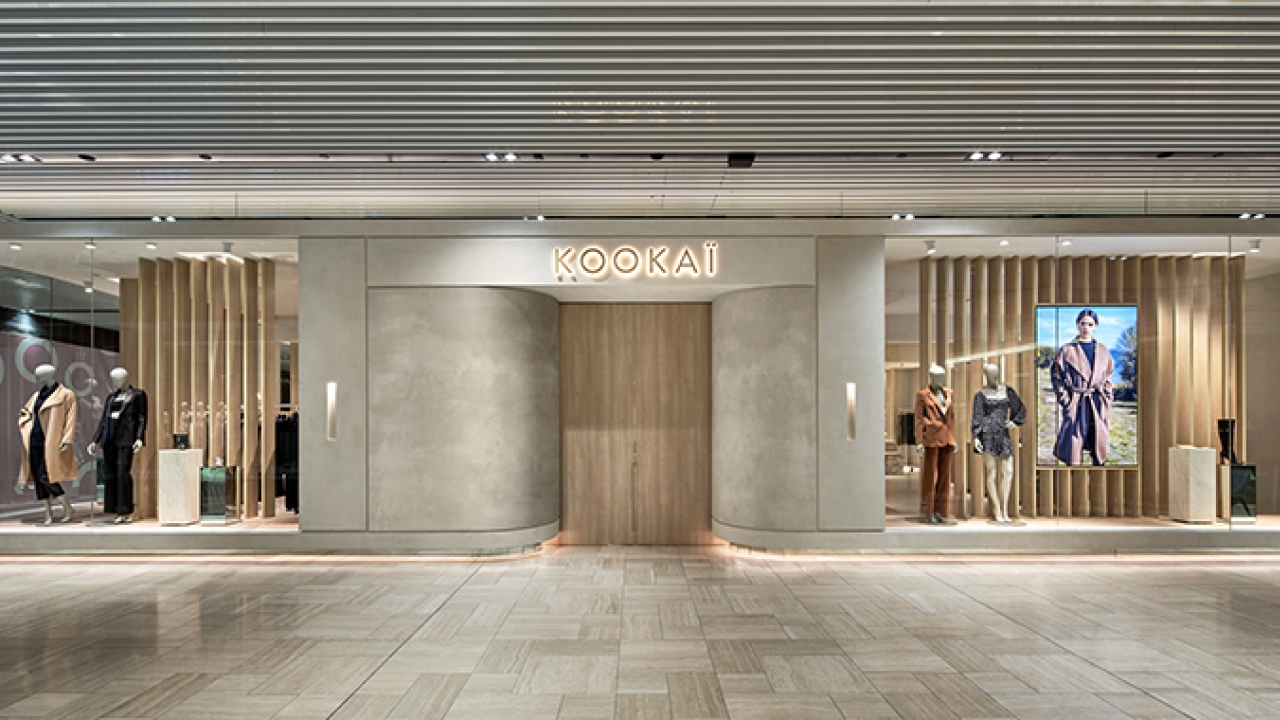Kookaï turns to Avery Dennison’s RFID technology
Global fashion retailer Kookaï has cut inventory counts from a few days to 30 minutes after implementing RFID technology from Avery Dennison at its manufacturing facilities in Fiji and Sri Lanka. The brand has also significantly boosted its supply chain visibility and omnichannel strategy.

The project is at the heart of the Kookaï omnichannel strategy: ultimately, all clothing and stores will be equipped with RFID, enabling it to precisely track all items within its supply chain, speed up check out times, enable online orders to be fulfilled from local stores and provide consumers with extra information about the products they enjoy via new interactive experiences.
Kookaï has tagged all the garments it manufactures with an integrated RFID Printed Fabric Label (PFL) catering for multiple languages. In partnership with Sensormatic Solutions TrueVue Cloud platform, Avery Dennison has offered an RFID technology that can capture and manage the item-level data, enabling the brand to track the inventory process from production to quality control and then to finished goods.
This has delivered dramatic productivity improvements. At the Fiji factory, Kookaï data indicate that 30,000 items can be counted in just 30 minutes – a process that used to take a few days. The brand is also experiencing benefits in-store by reducing its out-of-stocks and gaining visibility into inventory levels so that re-stocks can be increased ahead of time for fast-selling items.
‘We wanted to remove any customer dissatisfaction due to out-of-stock items or missed sales due to inventory not being accurately represented in our stock file,’ said Amelia Adey, loss prevention and compliance manager at Kookaï Australia. ‘Stocktakes can be done daily now instead of on a twice-yearly basis which enables us to provide accurate updates to our customers in real-time. Having control over the majority of our supply chain due to owning our own factories made the implementation of RFID an obvious choice in achieving these goals.’
Kookaï produces most clothing in its factories and has complete control over tagging items at the manufacturing site. The project's next phase is underway to extend visibility even further to its remaining suppliers, which will also tag each item. This will give even greater visibility as to where raw materials are sourced and where they are in transit to help iron out any supply chain bottlenecks. It also means that any products Kookaï has not produced deliver the same in-store benefits for staff and its customers and effectively eliminates the need for any stock to be counted or tracked manually.
‘By digitizing the stock receipting process, we can eliminate the need for manual counting of deliveries, leaving our sales assistants free to put the focus back on the customers rather than administration,’ added Adey. ‘We have been able to significantly reduce our stock availability buffers on our Find in Store function online, with confidence that the stock will actually be available.’
Future stages of this project include integration into the Kookaï point of sale system, so RFID replaces barcodes at the till completing transactions in seconds with no scanning required. The brand is also exploring the possibility of RFID readers in the changing rooms to provide further customer service and collect metrics on product sell-through. Longer-term, Kookaï is assessing the use of RFID to enhance the traceability of its products and raw materials and to be able to convey its ethics and sustainability story to its customers.
‘This is an exciting project to be part of,’ commented Uwe Hennig, director, global RFID market development at Avery Dennison Smartrac. ‘Kookaï is looking to implement RFID at every stage of its production, supply chain, and retail experience. Already we have seen dramatic gains from inventory visibility. Still, as these progresses, we look forward to helping them make further improvements as we capture and analyze more and more data that comes with digitizing its operations.’
Steve Schenk, sales director for inventory intelligence in Australia and New Zealand at Sensormatic Solutions, added: ‘This has been an incredible journey for Kookaï and has involved many stakeholders along the way, but the leadership of the business has always been laser-focused on the benefits RFID will deliver. We’re extremely proud that our TrueVUE Cloud application has been chosen to capture and manage accurate, item-level data in real-time across the manufacturing and store network so that the Kookaï team can make informed business decisions and delight their customers. We’re extremely excited for what lies ahead.’
Stay up to date
Subscribe to the free Label News newsletter and receive the latest content every week. We'll never share your email address.

